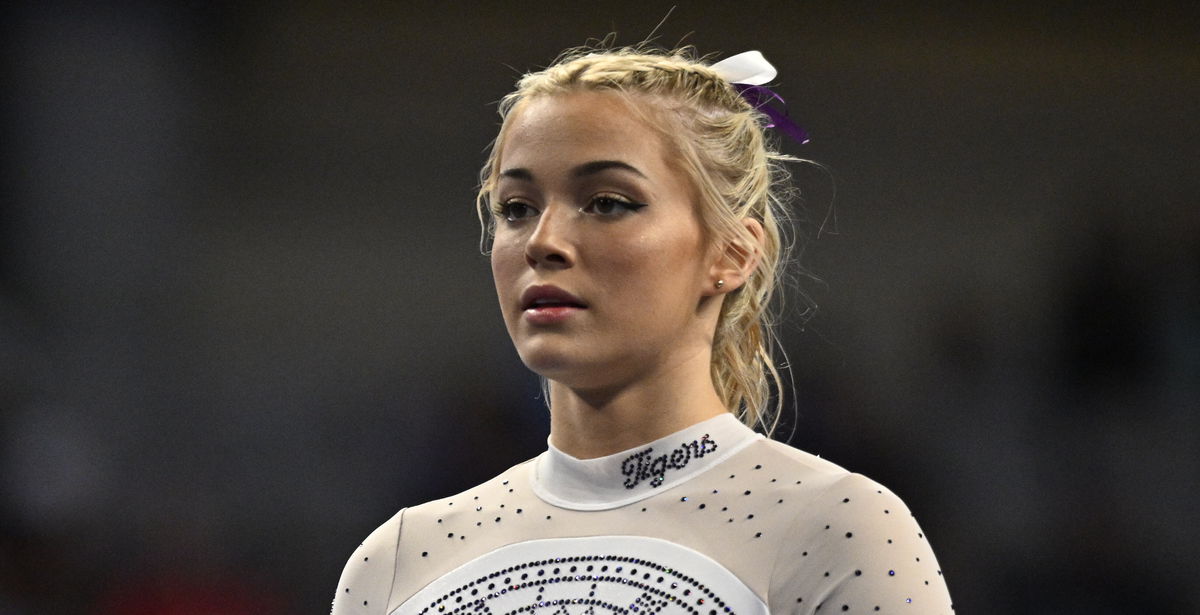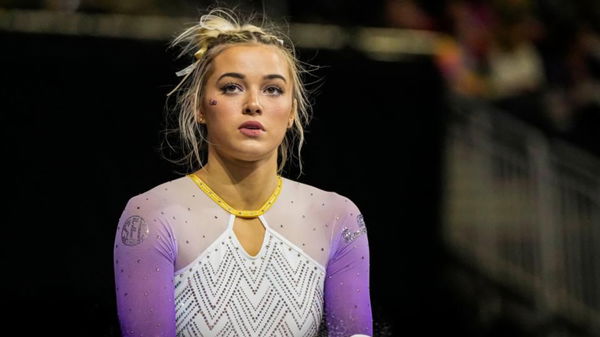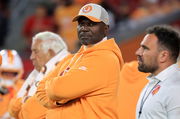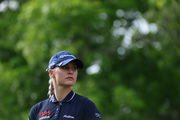

Becoming an NCAA athlete isn’t just about talent. It’s a years-long grind that takes sweat, sacrifice, and more than a few ‘why am I doing this?’ moments. Just ask Olivia Dunne. She started flipping around at age 3 in New Jersey, sped through the levels, and hit elite by 11. By 2014, she was one of the youngest U.S. elite gymnasts. Her next few years were spent competing for championships and battling injuries. But this was supposed to end once she entered college. After all the years of grinding, this was supposed to be her happy place. Until it wasn’t.
Watch What’s Trending Now!
Olivia Dunne might be the biggest name in NCAA gymnastics. She might even have the biggest bag. But even she’s running into some roadblocks this season. Since joining LSU in 2020 at just 17, she’s been a key player. She even led the team to an NCAA championship in 2024. Now, in her final year, she was hoping for a fairytale repeat… but plot twist! Scoring isn’t what it used to be. Just look at the numbers: in 2022, we saw 71 perfect 10s, then 84 in 2023, and a whopping 87 in 2024. And now?
We’re five weeks into NCAA 2025, and there have been exactly three 10s—two from Jordan Chiles, and one from Helen Hu. The WCGA has decided to shake things up with a new system called the Collegiate Judging Issue (CJI), which ranks judges on how close the scores are to a so-called “target.” The result? Stricter scoring, fewer perfect 10s. And Dunne is not thrilled. She commented, “If you want fans to enjoy the sport… people understand what a perfect 10 is and want people who do things that look great to be rewarded.”
ADVERTISEMENT

ADVERTISEMENT
According to a publication by The Guardian, Olivia Dunne didn’t hold back when she said, “You come to college to have fun and to finally get rewarded after those hard years of the club or elite gymnastics, especially in this era of gymnasts [s] that did have to go through what they did in Texas.” Wait, you must be curious about that last part, right? Well, it all comes down to the struggles gymnasts face in their journey.
Many current NCAA gymnasts have suffered various forms of abuse—physical, emotional, and, for far too many, s*xual. Many seniors active were part of the infamous Karolyi Ranch in Texas. They were there to attend the national team camps, till it was shut down in 2018. That closure only happened after Simone Biles came forward as a survivor of former USA gymnastics doctor Larry Nassar.
ADVERTISEMENT
Biles stated that she couldn’t imagine resuming her career if she had to return to the very place where she had been abused. The Karolyi Ranch has been at the center of the se**al abuse scandal with more than 100 gymnasts. But Biles is not the only famous name that had an experience at the fateful ranch. Olivia Dunne also has a connection with it.
Olivia Dunne on the heartbreak of NCAA gymnastics’ changing culture
Dunne never trained directly under Bela or Marta Karolyi, but she did train at the Karolyi Ranch, which was the U.S. Team training center when Marta was the national team coordinator. Valeri Liukin, who coached at the Ranch and later became the U.S. women’s national team coordinator, was one of her coaches. And her daughter Nastia was one of Olivia’s mentors over the years. But luckily she was part of the camp only in its final days back in 2017. This was when Olivia was part of the US Junior Team.
ADVERTISEMENT
Dunne herself has never publicly shared any personal experiences of abuse. But she has undoubtedly trained alongside many gymnasts who have. For these victims, the NCAA was the refuge. The place where they could finally rest after years of hardships and enjoy the sport. But while the Division I athletics survive, the pressure to win remains. And with the energy levels, lack of crowds, and the drought of perfect 10s, even this refuge is starting to look bleak.
Dunne shared details about gymnasts from numerous colleges who contacted her with the joint opinion that NCAA gymnastics no longer brings them enjoyment. “I’ve had many other gymnasts from other schools, like handfuls of gymnasts and whole teams, reach out to me, saying that they feel the same way, that it’s just not as exciting and it’s not as much fun for the athletes.”
Top Stories
Forced to Leave FOX, Cowboys Legend Troy Aikman Says ESPN Is Like ‘U.S. Government’ & Clearly Distinguishes the Two Networks

Todd Bowles Points Fingers at Baker Mayfield & Co. in a Strong Statement That Could Get Him Punished After Bucs Loss

What Settlement Agreement Have Michael Jordan & NASCAR Reached? Everything to Know From Evergreen Charters to Payout

Arthur Blank Makes Firing Decision on Raheem Morris After Falcons HC Lands on Hot Seat

Cowboys Legend Troy Aikman Teases NFL Comeback After Airing FOX’s Dirty Laundry

Charley Hull Opens Up on Traumatic Divorce from Ex-Husband for the First Time Ever

And that’s the real issue—scores aren’t just scores. They symbolize something bigger for gymnasts who endured so much to get here. Ideally, scoring should be about technical execution and fairness, but the reality is more complicated. How do you create a system that ensures accountability while also recognizing the deeper meaning these moments hold for athletes?
ADVERTISEMENT
Because right now, for gymnasts like Dunne, that long-awaited reward feels further away than ever.
ADVERTISEMENT
ADVERTISEMENT
ADVERTISEMENT

